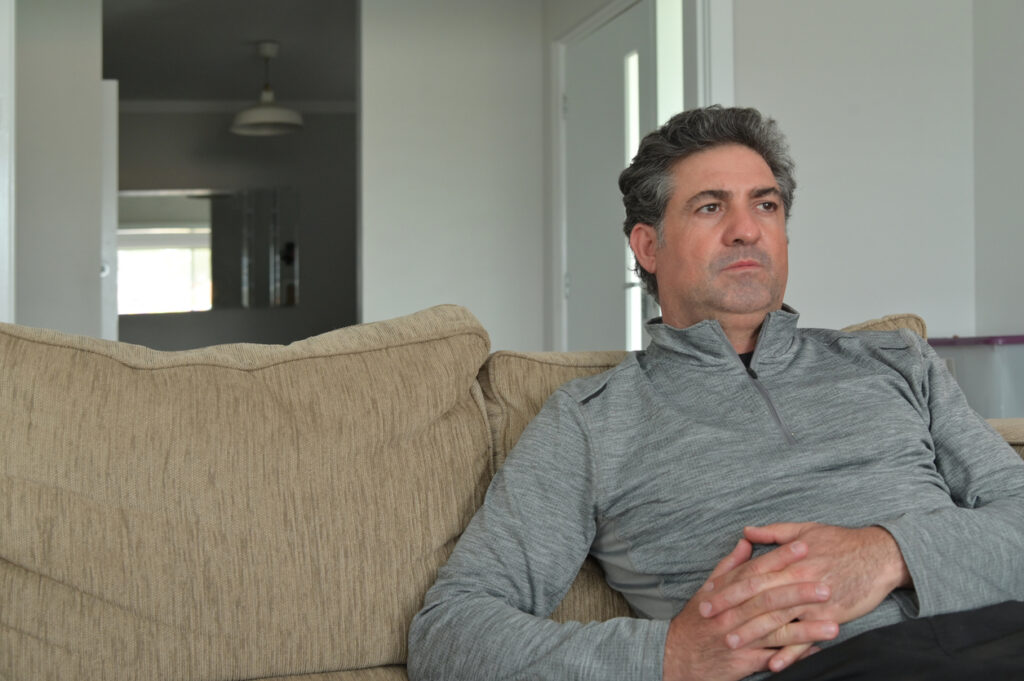Withholding compliments can feel mean and neglectful of your partner’s needs.

Have you ever found yourself wondering why your husband no longer offers compliments like he used to? At one time, his kind words may have made you feel cherished, valued, and deeply connected. But now, as time has passed, you might notice a growing silence where praise and admiration once lived. It’s not uncommon to feel hurt or even invisible when those small but meaningful affirmations fade away. That absence can slowly chip away at your confidence and leave you questioning what’s changed.
It’s important to remember that there are often complex layers behind this shift. Sometimes, the reasons have little to do with how he feels about you and more to do with internal patterns, life pressures, or misconceptions about what you need. If you’re grappling with the absence of compliments, here are some thoughtful possibilities that might explain why your husband has stopped offering them—and insight into what may be happening beneath the surface.
1. He Thinks You Already Know

Many husbands assume their wives automatically understand how they feel without the need for constant verbal reminders. In his mind, he may believe that his ongoing commitment, daily routines, and shared life together already serve as proof of his admiration. Since he continues to show up, provide support, and share his life with you, he might feel that these actions speak for themselves and that verbal compliments are unnecessary, says Chad in his article at Chad David. This belief, though often unintentional, can leave you feeling unseen and underappreciated.
He may not fully grasp how much those simple, heartfelt words still mean to you after all these years. Sharing your feelings openly and gently letting him know how much you cherish hearing his affirmations can help bridge the gap. When he realizes that verbal appreciation continues to nourish your emotional connection, he may become more intentional about expressing his admiration through words again.
2. He’s Distracted or Stressed

Life’s demands can easily consume emotional bandwidth, leaving little space for thoughtful expressions like compliments. Your husband may be juggling work pressures, financial responsibilities, health concerns, or family dynamics that dominate his mental landscape. When his mind is crowded with worry or problem-solving, the practice of offering compliments may unintentionally slip to the background, not because he doesn’t care, but because his focus is pulled elsewhere, shares Ratika Pai at Mom Junction.
These distractions can create a sense of distance, even when his love remains intact. By initiating calm, understanding conversations, you may help him feel safe to share what’s weighing on him. When he feels supported and understood, it can naturally restore his ability to reconnect emotionally and bring those small, meaningful affirmations back into your daily interactions.
3. He’s Emotionally Disconnected

Over time, emotional distance can quietly settle into a relationship. Subtle shifts in communication, unresolved tensions, or unspoken disappointments may create a gap between you and your husband. When that gap grows, offering compliments may feel forced or even forgotten, as the emotional closeness that once made those words flow easily starts to fade.
This disconnection doesn’t always signal a lack of love but may indicate a need for intentional reconnection. By fostering open dialogue, sharing vulnerable feelings, and creating space for meaningful experiences together, you can rebuild the intimacy that encourages sincere compliments to resurface, as stated by Bob at The Stenberg Center for Successful Relationships. As emotional closeness strengthens, he may feel more inspired to express his appreciation in ways that feel genuine and heartfelt again.
4. He’s Stuck in a Routine

Long-term relationships often settle into familiar patterns that, while comfortable, can unintentionally lead to emotional complacency. Your husband may have grown so used to the stability and predictability of your partnership that he forgets to actively express the gratitude and admiration he still feels. The daily grind can dull the impulse to offer spontaneous compliments, as routines take center stage.
Breaking free from these habitual rhythms may be as simple as introducing new experiences or small shifts in your routine. Trying new activities together, planning spontaneous dates, or even just pausing to celebrate small wins can refresh your connection. As novelty and appreciation re-enter your shared space, he may naturally rediscover the joy of verbalizing his admiration and gratitude for you.
5. He’s Forgetting to Notice the Little Things

In the busyness of life, it’s easy to overlook the small, beautiful details that once stood out so vividly. Your husband may be so focused on providing, solving problems, or meeting larger obligations that he misses the little things you do each day—your effort, your appearance, your thoughtfulness. Over time, this unawareness can lead to a decline in the frequency of compliments.
Encouraging mindfulness within your relationship can help both of you reconnect with those small, meaningful details. Creating quiet moments where you both pause to appreciate simple gestures can reawaken his attention. When he begins to notice and acknowledge those everyday efforts again, it often leads to more frequent and heartfelt compliments that reflect a renewed sense of presence and appreciation.
6. He Feels Underappreciated

Sometimes, a husband who feels unrecognized for his own efforts may gradually withdraw from offering praise himself. When appreciation feels one-sided, resentment can quietly build beneath the surface, diminishing the motivation to give compliments. This isn’t about keeping score, but about the natural human desire for reciprocity and validation.
Taking time to acknowledge and express gratitude for what he contributes can shift this dynamic. When both partners actively appreciate one another, it fosters a more generous atmosphere of mutual respect and kindness. As he feels seen and valued, his willingness to offer compliments may revive, creating a more balanced exchange of affirmation that strengthens your connection.
7. He Assumes You Don’t Need Compliments

Your husband may have mistakenly concluded that you no longer require or desire compliments after many years together. In his mind, you’ve built a life, faced challenges, and grown strong together—perhaps he believes your confidence and security no longer hinge on verbal affirmations.
However, emotional needs often remain steady throughout life, regardless of external accomplishments or relationship longevity. Sharing with him how much those small words of admiration still matter can help correct this misunderstanding. When he understands that verbal compliments continue to make you feel cherished, he may begin to offer them more freely and consistently.
8. He’s Unaware of the Impact

Not everyone fully understands how powerful words of affirmation can be in a relationship. Your husband may simply not recognize that his silence affects your self-esteem, emotional security, and overall happiness. For some, the importance of compliments is underestimated, especially if they didn’t grow up in environments where verbal affirmation was modeled.
Bringing gentle awareness to how much his words affect you can open his eyes to their significance. Sharing specific examples of how a compliment lifted your spirits or deepened your bond can make the emotional impact more tangible for him. Over time, this awareness can encourage him to become more intentional in offering the verbal affirmations you crave.
9. He’s Focused on Physical Connection

Some men are naturally inclined to express love and affection through physical gestures rather than verbal affirmations. Your husband may believe that holding your hand, offering a warm embrace, or initiating intimacy conveys all that needs to be said. For him, these physical expressions may feel like sufficient proof of his admiration and love.
While physical affection is meaningful, many people still need to hear loving words to feel emotionally fulfilled. Letting him know that you deeply value both forms of connection can help him understand your emotional landscape better. By honoring both his natural style and your desire for verbal affirmation, you can create a more balanced and deeply satisfying connection.
10. He’s Forgetful or Not in the Habit

Complimenting may not come naturally to everyone, and over time, the habit of offering affirmations can quietly fade. If your husband isn’t accustomed to giving compliments regularly, it may not occur to him to verbalize his admiration, even if he feels it internally. Habits, once lost, often require intentional effort to reestablish.
Encouraging him gently and positively can help reintroduce the practice of giving compliments into your relationship. You might start by modeling the behavior yourself, offering him sincere compliments and affirmations. As he sees the joy and appreciation these bring, it may inspire him to become more mindful of expressing his own kind words more frequently and naturally.
